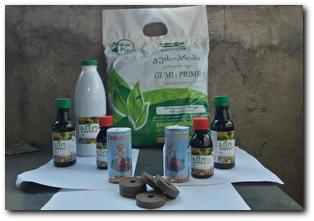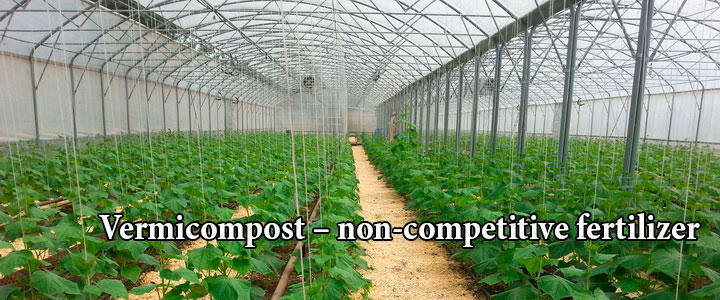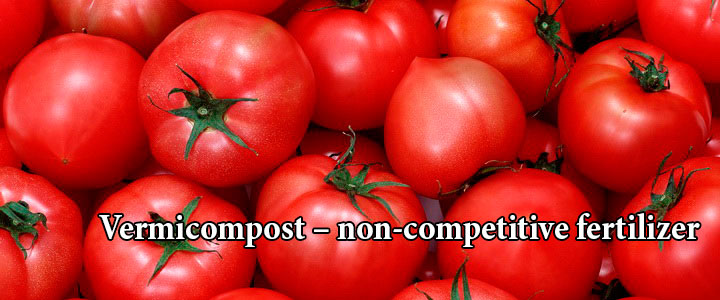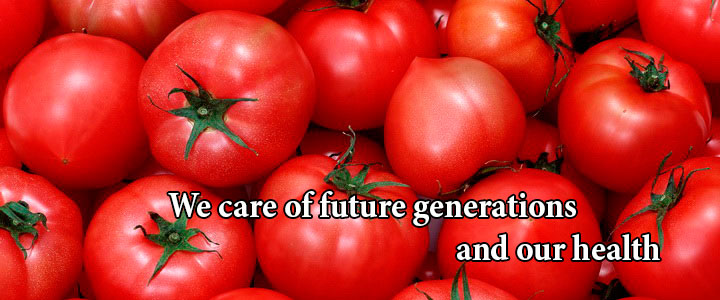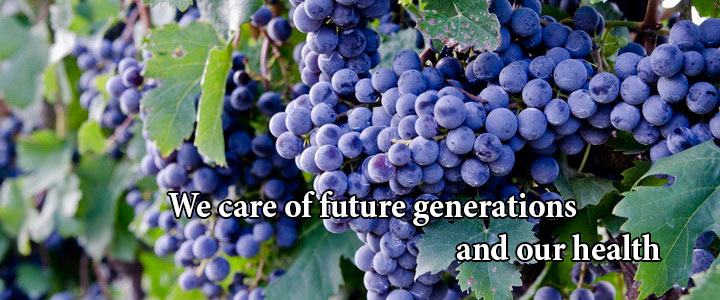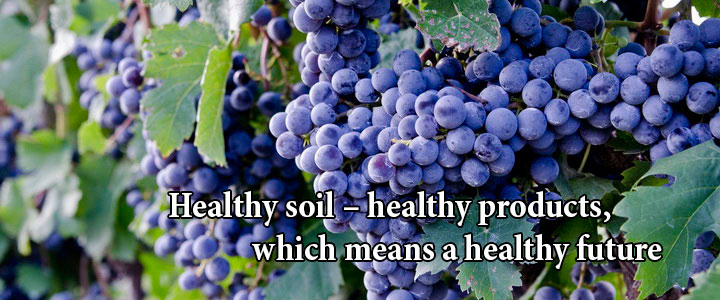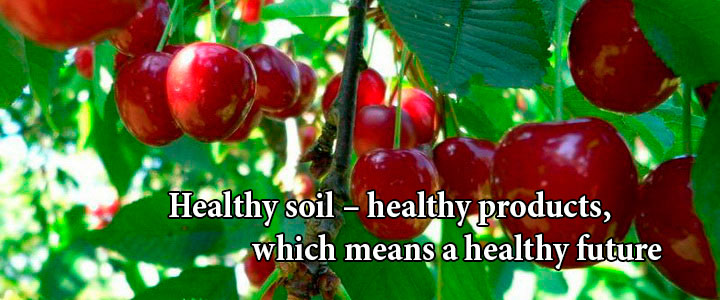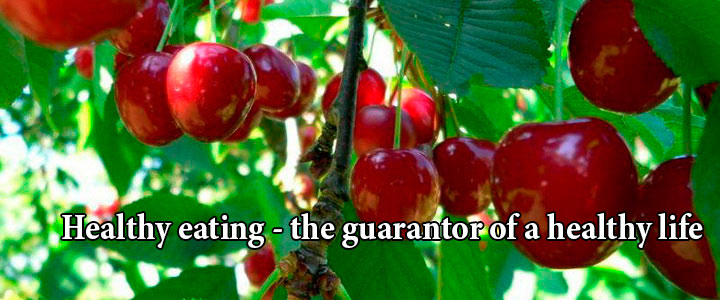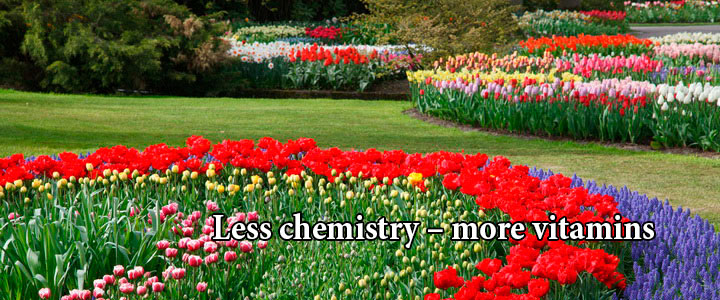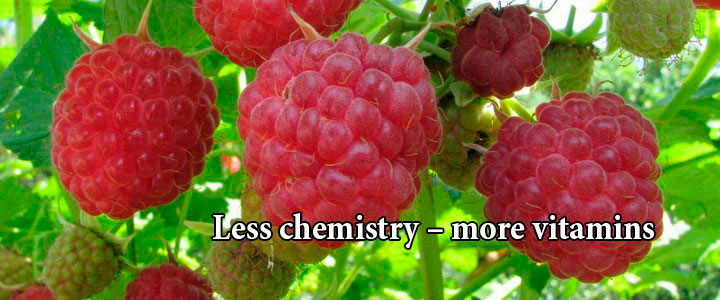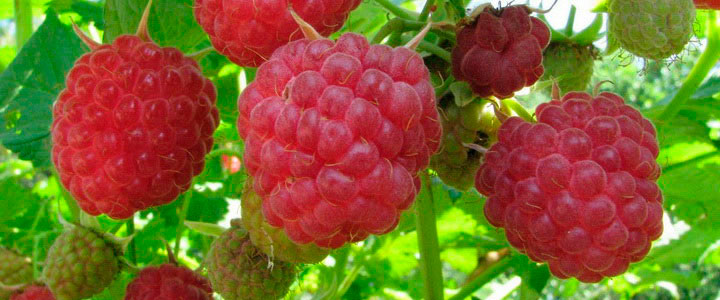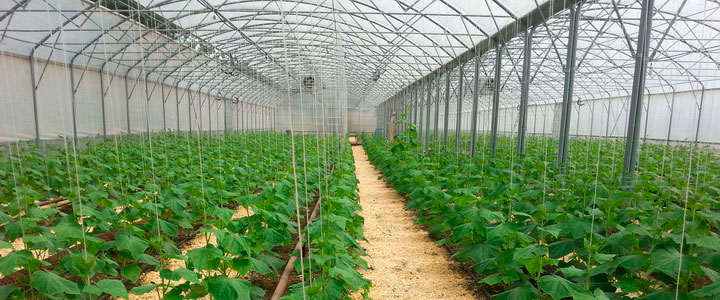


Vermicompost «GUMI -PRIME»
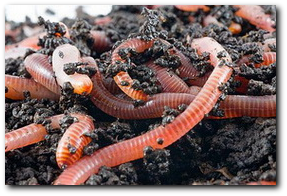
Benefits
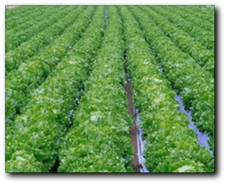
Vermicompost - ecologically pure, concentrated, organic soil-forming fertilizer.
Vermocompost - product processing from cattle manure by technological worm population EISENIA FOETIDA.
Vermicompost is a spin-off or coprolites of earthworms. It is a black, crumbly soil-like and pleasant-smelling mass, similar to the black earth. Since vermicompost contains a large number (up to 32% by dry weight) of humic substances, it gives to this organic fertilizer high agrochemical and growth-promoting properties.
Vermocompost - product processing from cattle manure by technological worm population EISENIA FOETIDA.
Vermicompost is a spin-off or coprolites of earthworms. It is a black, crumbly soil-like and pleasant-smelling mass, similar to the black earth. Since vermicompost contains a large number (up to 32% by dry weight) of humic substances, it gives to this organic fertilizer high agrochemical and growth-promoting properties.
All its nutrients are combined and balanced and are in a bioavailable to the plant compounds. Vermicompost contains no pathogens, helminth eggs, weed seeds, and also does not contain heavy metals. Biogumus contains a unique community of microorganisms useful for soil and plants, which, when apply it to the soil, colonizes there and produces plant hormones, antibiotics, fungicides and bactericides compounds resulting the displacement of the pathogenic microflora. This all eventually heals soil and eliminates many common plants diseases.
Application of vermicompost makes three types of impacts on soil and plants.
Physical:
· increases the water holding capacity of the soil;
· promotes soil aeration;
· improves soil structure and friability;
· reduces soil erosion;
· facilitates the workability of soils.
Chemical:
· increases the amount of nutrients in the soil (organic and inorganic);
· turns inaccessible forms of the compounds into useable power plants;
· prevents groundwater contamination with heavy metals and radionuclides;
· reduces the degree of leaching (chemical) fertilizers;
· reduces the dose of fertilizer giving the same crop when using in the field;
· increases the buffering capacity of soils, which increases their ability to resist chemical stresses.
Biological:
· stimulates the growth of soil microflora and accelerates mineralization of organic substances;
· acts as a carrier and vehicle of nutrients through the cell wall;
· enhances cell respiration;
· stimulates the growth of roots and shoots;
· increases the viability and the percentage of seed germination;
· increases the solids content in the plants;
· interrupts the flow into the plant heavy metals and radionuclides;
· reduces the nitrate content in fruits and vegetables;
· reduces the need for chemical fertilizers;
· increases the rate of plant growth;
· shortens the vegetation period of plants;
· improves crop quality and increases the retention period of agricultural products;
· increases the resistance of plants to diseases.
Economic:
· one ton of vermicompost is equivalent to 20 tons of compost;
· three - five tons of vermicompost per 1 ha increases productivity of agricultural lands twice;
· is working in the soil for at least 4 years;
· reduces the use of chemicals and fertilizers;
· reduces costs of transportation;
· reduces fuel needed for soil;
· reduces labor costs (person / hour);
· mulching humus into the soil, when using it in urban forestry avoids cutting and disposal of soil contaminated with
heavy metals;
· is used in remediation of oil-contaminated soils.
As a conclusion, all these factors enable to produce high quality and environmentally friendly agricultural products and to
reduce losses during storage.
